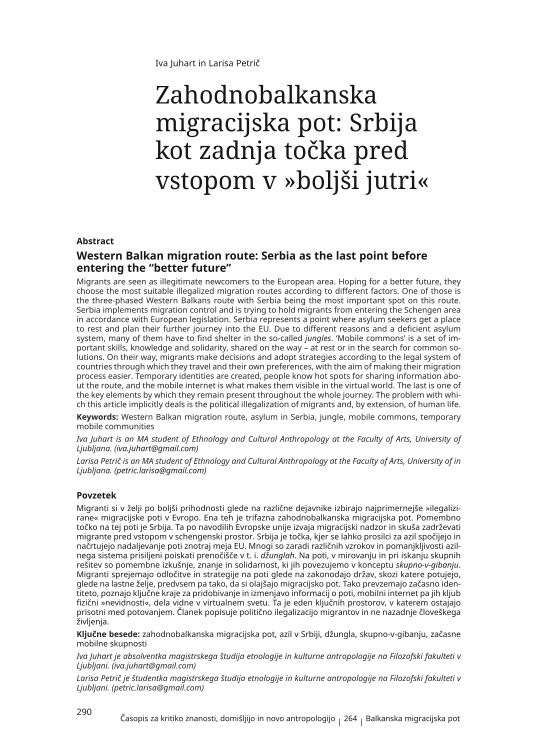Migrants are seen as illegitimate newcomers to the European area. Hoping for a better future, they choose the most suitable illegalized migration routes according to different factors. One of those is the three-phased Western Balkans route with Serbia being the most important spot on this route. Serbia implements migration control and is trying to hold migrants from entering the Schengen area in accordance with European legislation. Serbia represents a point where asylum seekers get a place to rest and plan their further journey into the EU. Due to different reasons and a deficient asylum system, many of them have to find shelter in the so-called jungles. ‘Mobile commons’ is a set of important skills, knowledge and solidarity, shared on the way – at rest or in the search for common solutions. On their way, migrants make decisions and adopt strategies according to the legal system of countries through which they travel and their own preferences, with the aim of making their migration process easier. Temporary identities are created, people know hot spots for sharing information about the route, and the mobile internet is what makes them visible in the virtual world. The last is one of the key elements by which they remain present throughout the whole journey. The problem with which this article implicitly deals is the political illegalization of migrants and, by extension, of human life.




